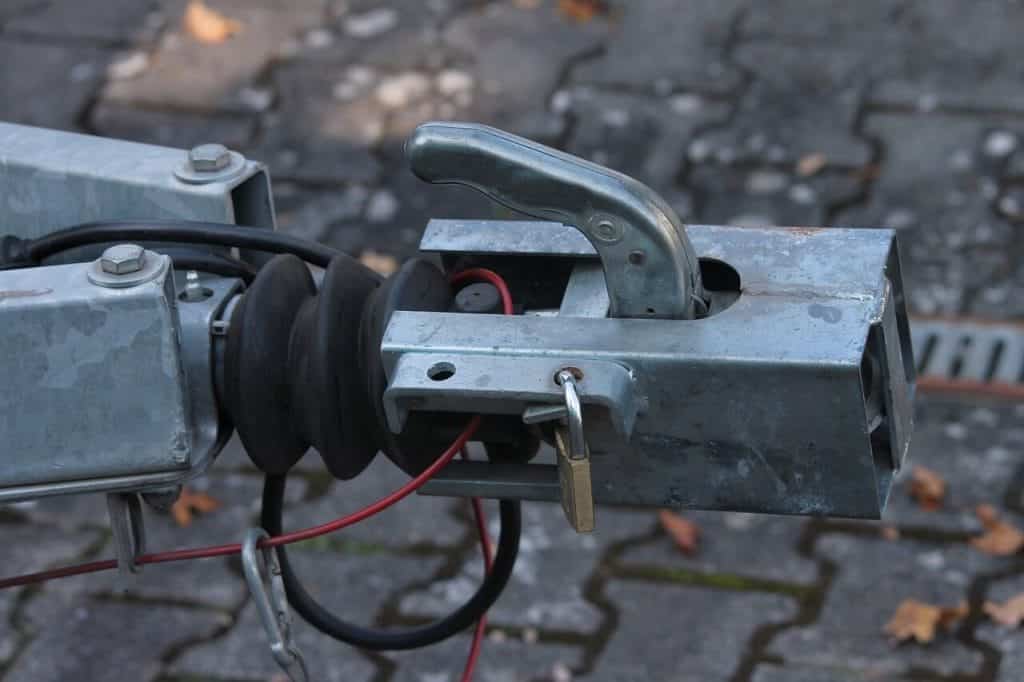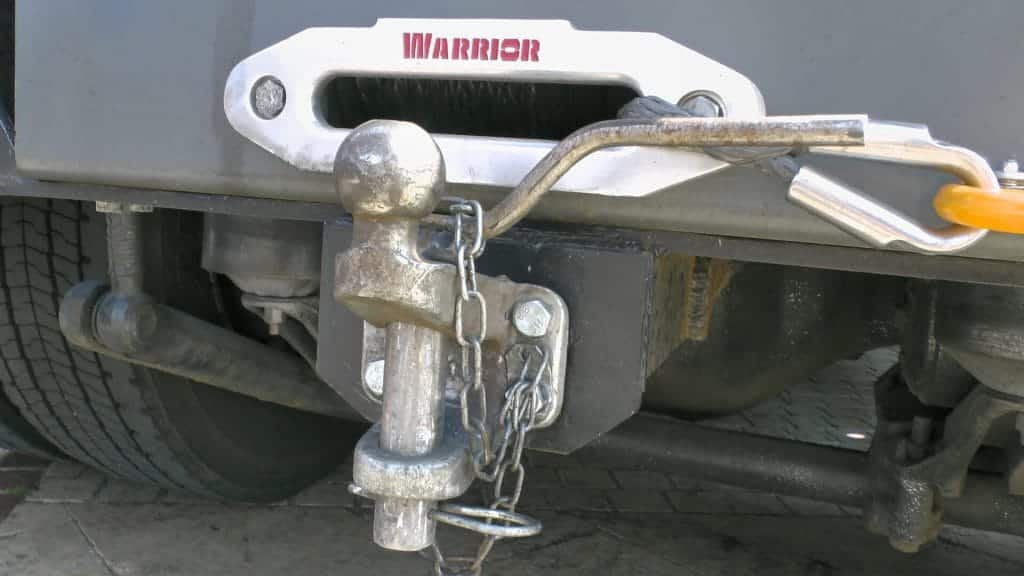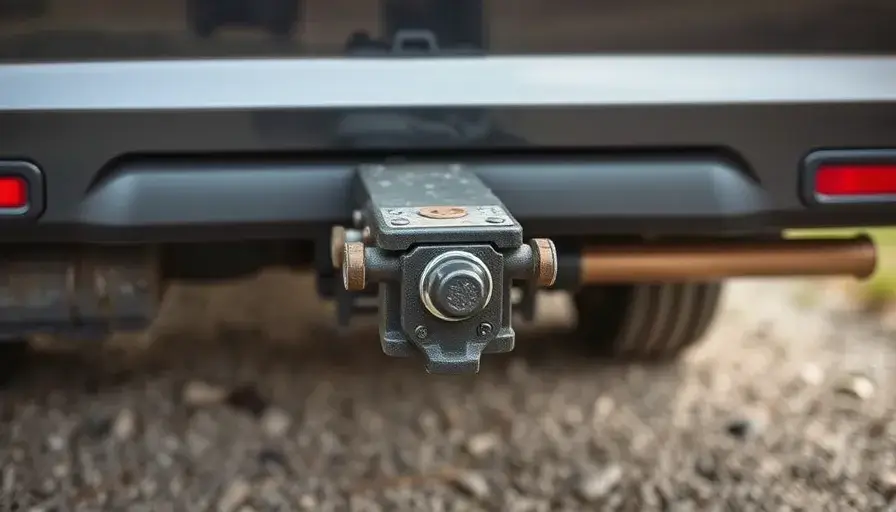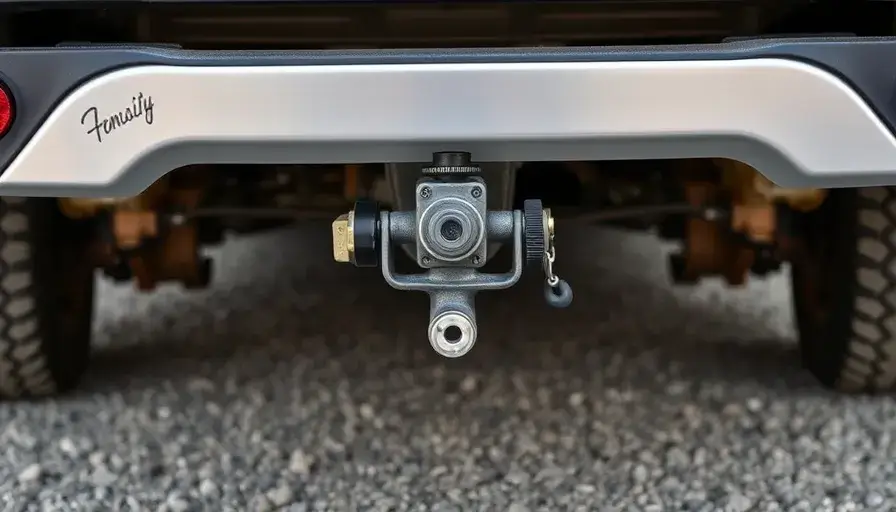

Choosing a trailer hitch can be an intimidating process, particularly for those doing it for the first time. With so many options and factors to consider, it’s easy to feel overwhelmed. However, selecting a trailer hitch that fits your needs is crucial for safe and efficient towing.
In this trailer hitch guide, we cover the different types of hitches, their uses, and capacities. Additionally, we provide tips on proper installation and maintenance.
At Millennium Trailers, we’re committed to offering quality trailers at discounted prices. With over 5,000 trailers sold across all 50 states, our expertise and dedication to customer service make us a trusted source for all your trailer needs.
Trailer hitch uses span a wide range of activities, making it a versatile tool. For professionals, a trailer hitch is indispensable for towing heavy equipment, transporting livestock, or even snow plowing. On the personal side, it allows for the easy transportation of boats, bikes, or RVs, enhancing your outdoor adventures and travel experiences. You can also hitch trailers you’ve designed yourself.
If you want to get the best out of your trailer hitch, it’s always best to know a little about them. A typical towing setup includes:
The benefits of trailer hitches extend beyond simple utility. One major advantage is the ability to tow trailers over long distances autonomously. This is incredibly convenient for road trips, moving homes, transporting personal vehicles, or hauling large items that wouldn’t fit in your vehicle.
Investing in a trailer hitch is fiscally smart for a few key reasons:
A trailer hitch expands your vehicle’s capabilities, from towing heavy equipment to transporting recreational vehicles.
Enjoy the ease of transporting large items without relying on professional movers or rental services.
Provides a secure point for rooftop cargo, preventing potential mishaps during transit.
Ideal for road trips and moving, allowing you to tow trailers without additional assistance.

When considering a cost-effective trailer hitch solution, buying a trailer hitch for your vehicle is far more economical than renting a vehicle with a pre-installed hitch or renting the hitch itself. When it comes to buying vs. renting trailer hitches, the best option is to simply install one on your existing vehicle.
First, the long-term savings are significant. Purchasing a trailer hitch and having it installed might cost between $200 and $500. On the other hand, renting a vehicle with a hitch can cost over $100 per day, plus additional fees for mileage and insurance. If you need a trailer hitch more than a few times a year, the cost of renting can quickly outweigh the cost of owning.
Renting also comes with added inconveniences. Specialty trailer registration and insurance can add unexpected costs. You also face the potential issue of vehicle availability.
Rentals often come with restrictions on what you can tow, limiting your flexibility.
Now, we have to discuss the different types of trailer hitches. For starters, we’ve got five main classes of hitches and three main configurations. Let’s explore their uses, towing capacities, and suitable vehicle types.
For more info on the top trailer towing guides for trucks, click here.
Class 1 hitches are ideal for light-duty towing tasks, making them perfect for everyday activities. They’re commonly used on passenger cars and small crossovers.
For those needing a bit more power, Class 2 hitches are perfect for medium-duty towing. They can handle larger loads than Class 1 hitches.
The most versatile and widely used Class 3 hitches are ideal for those who need to tow larger loads regularly. They are commonly found on full-size trucks and SUVs.
Class 4 hitches are designed for heavy-duty towing, suitable for substantial loads that require robust equipment.
How to choose amount of drop on a trailer hitch depends on the demand of the towing application. Class 5 hitches handle the heaviest loads. They’re used on commercial trucks and full-size pickups.

When it comes to heavy-duty towing, such as large RVs and livestock trailers, the 5th-Wheel Hitch stands out. This hitch couples to a 5th-wheel kingpin and is mounted to the truck bed, providing a high capacity of up to 30,000 lbs. GTW. The positioning of the hitch over the rear axle offers better stability and weight distribution.
Another heavy-duty option is the Gooseneck Hitch, designed for agricultural and industrial towing. It couples to a gooseneck trailer and is also mounted in the truck bed, typically featuring a ball hitch with a towing capacity of up to 38,000 lbs. GTW.
The Front-Mount Hitch, installed at the front of the vehicle, offers unique versatility. It’s typically used for mounting accessories like winches, snow plows, and cargo carriers or for maneuvering trailers into tight spaces, with a towing capacity usually around 5,000 lbs. GTW, front-mount hitches add functionality to trucks and SUVs.
By understanding the specific uses and capacities of these trailer hitch classes and specialized configurations, you can make a better-informed decision tailored to your vehicle and towing needs. There’s a trailer hitch designed to meet your requirements, ensuring safety and efficiency on the road.
Selecting the right hitch for your vehicle involves several important considerations. Here are some practical tips.
The first step in choosing a trailer hitch is to know your vehicle’s specifications and towing capacity. Check your owner’s manual for details such as the year, make, model, and maximum towing capacity.
Trailer hitches come in different designs, such as round vs. square tubing and exposed vs. concealed hitches. Choose a hitch that complements your vehicle’s aesthetics. Concealed hitches, for instance, provide a cleaner look, as they are hidden behind the bumper, while exposed hitches are more accessible but visible.
Depending on your towing needs, you might require additional accessories like a ball mount, hitch ball, and electrical wiring. Ensure that these components are compatible with your chosen hitch. For instance, the size of the hitch ball should match the coupling head of your trailer. Common sizes include 1 7/8-inch, 2-inch, and 2 5/16-inch, each suited for different towing capacities.
Always verify that the ball mount and ball size fit your trailer’s coupling head. Mismatched sizes can lead to unsafe towing conditions. Ensure the hitch ball you select can handle the load you intend to tow, aligning with your vehicle’s towing capacity.

If done correctly, installing a trailer hitch can be straightforward. Here’s a step-by-step guide to help you install your hitch safely and securely. Follow these trailer hitch selection tips.
Before starting the installation, inspect all parts and components of your hitch kit. This ensures everything is in order and prevents issues during installation. Clean the bolt holes on your vehicle’s frame using WD-40, letting it soak for a minute or two, then scrub with a small wire brush to remove grime. Similarly, clean the bolts themselves, not scratching or damaging their surfaces. Verify that you have the correct bolts for your hitch kit.
Having the right tools on hand is essential for a smooth installation. You’ll need:
Additional useful tools include a car jack, jack stands, screwdrivers, Torx bits, a box wrench set, and a power drill with carbide bits (if you need new holes).
Sometimes, you may need to temporarily reposition certain vehicle parts, such as the exhaust system, bumpers, or bumper brackets, to fit the hitch. Carefully loosen and adjust these components as needed. If you’re unsure, consult a mechanic to avoid damaging your vehicle.
Hitches are designed to bolt into pre-existing holes in your vehicle’s frame. If suitable holes are unavailable or misaligned, you may need to drill new ones. Follow the drilling instructions in your hitch kit. Start by center-punching the location for new holes, then drill a small pilot hole before creating the full-sized hole. This method minimizes damage and ensures precision. Never drill holes larger than the bolts provided in your kit.
Practice assembling the hitch before the final installation to ensure you understand the process and identify any potential issues. Follow the instructions that you get with your hitch kit, and use a torque wrench to tighten all bolts to the manufacturer’s specifications.
By following these trailer hitch installation tips, you can ensure a secure and efficient setup, ready for all your towing needs.

When it comes to trailer hitch expert advice, communicating with a professional can make all the difference. At Millennium Trailers, our experts are dedicated to providing you with the best guidance and support for all your towing needs.
By reaching out to a Millennium Trailers expert, you benefit from personalized advice tailored to your specific requirements. Our experts have extensive knowledge and exhaustive experience, ensuring you get the right solution for your hauling needs.
To get professional assistance, contact Millennium Trailers today. Our customer service team is on hand and ready to help you with any trailer hitch questions. You can reach us at:
Visit Us: 12345 Southeastern Ave., Indianapolis, IN 46259
Call Us: 1-800-978-7223
Experience the Millennium difference with our competitively-priced, high-quality trailers and exceptional customer service.
Understanding the different trailer hitch classes and specialized configurations ensures you choose the best hitch for your vehicle and towing needs. For expert advice and assistance, trust Millennium Trailers. Our knowledgeable team is always happy to help you make the right choice and ensure a smooth installation process.
For professional guidance on trailer hitch selection and trailer hitch installation, contact Millennium Trailers today. We’re here to provide the support you need for all your towing adventures. Reach out to us and experience the Millennium difference.
Car and Driver. (2021, October 8). New car buying advice: Always get the hitch. Car and Driver. https://www.caranddriver.com/features/a37773613/new-car-buying-advice-always-get-the-hitch/
Curt Manufacturing. (n.d.-a). Basic towing components. CURT. https://www.curtmfg.com/basic-towing-components
Curt Manufacturing. (n.d.-b). Types of trailer hitches. CURT. https://www.curtmfg.com/types-trailer-hitches
Gen-Y Hitch. (2022, March 2). 5 reasons why you should get a hitch. Gen-Y Hitch. https://genyhitch.com/5-reasons-why-you-should-get-a-hitch/
Millennium Trailers. (n.d.). About us. Millennium Trailers. https://www.milltrailers.com/about-us/
Trailer Superstore. (2023). How to choose a trailer hitch. Trailer Superstore. https://www.trailersuperstore.com/how-to-choose-a-trailer-hitch/
West Island Garage. (n.d.). How to choose a trailer hitch. West Island Garage. https://westislandgarage.com/en/services/trailer-hitches/how-to-choose-a-trailer-hitch/
Millennium Trailers is your trusted partner for high-quality trailers at unbeatable prices. Serving all 50 states, we’ve delivered over 5,000 trailers nationwide.
Established in 1998, we’re a company dedicated to meeting your hauling needs with excellence. Whether it’s cargo trailers or custom living quarters, we provide a wide range of options to suit your requirements. Our knowledgeable and friendly team ensures a smooth buying experience with personalized assistance. Proudly offering competitive pricing, state-of-the-art designs, and easy financing options. Committed to customer satisfaction, we strive to simplify the process of finding your perfect trailer.
Choose Millennium Trailers for a reliable, customized solution that delivers quality and value for your investment.
Copyright 1998 – 2023 Millennium Trailers, Inc.